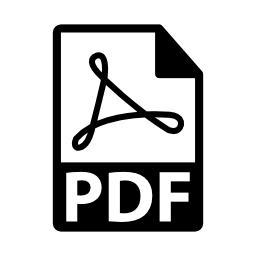February/March 2024 (vol. 20/5)
ContentsFeaturesNewsLegal
NewsResearch DigestResearch PlusCPD
 PERSONAL LEARNING ZONE
PERSONAL LEARNING ZONE
Summary:
FEATURED ARTICLE
This issue of Occupational Health [at Work] features a Personal Learning Zone (PLZ) article recommended for continuing professional development (CPD). The assignment questions, ‘Personal learning statement’ and ‘Certificate of engagement’ are available to subscribers at ohaw.co/AWPcpd. These will also be stored in your password-protected PLZ. The PLZ will help you document your own CPD. Occupational health physicians and nurses, occupational hygienists and other professionals can use the resource in support of their specialism’s revalidation or CPD requirements.
Pages 25–34. Consent to release occupational health reports. There are two acceptable ways to verify that a worker consents to the release of an OH report to their manager; however, both methods have ethical implications for the OH practitioner and practical implications for the OH service.
ADDITIONAL CPD
The following articles, news and research items are suggested reading for CPD and professional revalidation. Subscribers can complete their online Personal Learning Zone CPD record at ohaw.co/AWPcpd
Pages 07. Respirable crystalline silica, diesel exhaust emissions and wood dust are the three carcinogens that workers are most likely to be exposed to at high level, according to a major European survey.
Pages 10. The Equality Act 2010 (Amendment) Regulations 2023 ensure that the wider employment-law definition of disability established before Brexit is retained; ‘normal day-to-day-activities’ will continue to include participation in working life.
Pages 15-20. The government says it will develop a voluntary national framework setting out a minimum level of occupational health intervention that employers can adopt, and will explore options for a group-OH-purchasing framework for SMEs.
Pages 21-24. In order to better support workers with episodic disabilities and health conditions, occupational health and their human resources colleagues should try to understand why individuals decide to disclose or withhold information about their condition and the impact disclosure might have on their situation at work.
Pages 35-37. Bullying, harassment and sexual harassment is unlawful and can damage a person’s mental health; new GMC ethics guidance requires medical practitioners to take action if they witness such behaviour.
Pages 38-42. Our compendium of recent research includes studies on hazardous exposure from industrial cleaning, musculoskeletal disorders, obesity, return to work, hearing loss and mental wellbeing.
Author: The At Work Partnership Ltd
Occupational Health at Work February/March 2024 (vol. 20/5) pp43



